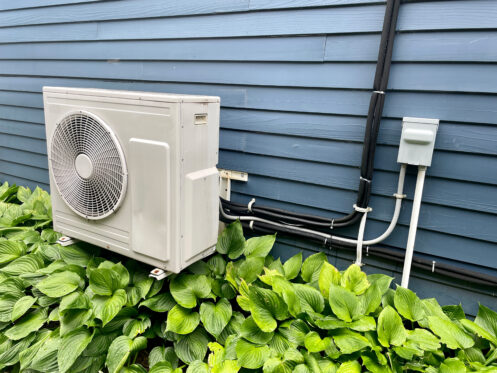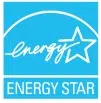One particular type of HVAC system that is growing in popularity is the heat pump. These units operate solely on a substance known as refrigerant to transport heat from one location to another. In the summertime, they can transport heat to the outdoors while in the wintertime they can bring heat in from outside.
Air-Source vs. Ground-Source
There are two different types of heat pumps that you can get for your home. The most affordable and popular on the market today is the air-source heat pump. This heat pump pulls heat from the air and is reliable in mild climates. The second is the ground-source heat pump also known as a geothermal heat pump. This type of heat pump has loops that run underground so it can extract heat from the soil. While geothermal heat pumps are effective in all different climates regardless of temperature, they are fairly expensive to get installed for the average homeowner.
Better Energy Efficiency
One of the biggest advantages of investing in a heat pump is that it operates very efficiently. It can reach efficiency levels of 300 to 400% in the winter when operating at temperatures above freezing. In the summertime, ductless mini-split heat pumps can offer more efficiency than a traditional central air conditioning system. This is because there is no air loss due to gaps in the system’s ductwork.
No Toxic Fumes
When you have a heating system that burns fuel to create heat, it produces toxic by-products. Normally, these by-products are vented directly to the outdoors because they can be very harmful if they accumulate inside your home. Unfortunately, sometimes fuel-burning heating systems can malfunction and allow these toxic fumes to back up indoors.
The beauty of a heat pump is that there is no burning of fuel to create heat. This means that there are no toxic exhaust fumes being produced by a heat pump. This can go a long way in providing you with optimal peace of mind about the safety of you and your family while you’re at home.
Tax Rebate Eligibility
One lesser-known benefit of investing in a heat pump is that it makes you eligible for a federal tax credit. Under the Inflation Reduction Act, homeowners can claim up to a maximum of $3,200 in the form of a tax credit when they purchase an eligible heat pump. Some local municipalities, utility companies, and state governments are offering tax incentives as well for these homeowners. It’s best to check with one of our HVAC technicians to determine what tax credits you may be eligible for.
Works Without Ductwork
Another great advantage of heat pumps is that they’re available in ductless models. This is perfect for homeowners who are adding an addition to their home and for those who have a home without existing ductwork. Instead of using ductwork to deliver treated air throughout your home, ductless mini-split units will treat the air in each specific room. Each mini-split unit has its own blower fan that’s responsible for pulling in air to heat or cool it before delivering it back into the room.
More Consistent Temperature
If you currently rely on a forced-air heating or cooling system, then you experience temperature fluctuations in your home. For example, you’ll notice that your room will get cold before your heating system will kick on. Then, there will be a rush of hot air that will last for a while until it gets cold again. The benefit of a heat pump is that it’s capable of providing a more consistent temperature for your home. These units tend to operate on a low setting so they’re constantly moving air as opposed to cycling on and off.
Year-Round Comfort
One great benefit to getting a heat pump is that it can provide all year-round comfort for you and your family. It’s able to provide cooling during the hot summer days and heating during the cold winter nights. Many homeowners love the fact that they only have to purchase one HVAC system to meet their needs.
Enhanced Humidity Control
There’s no doubt that North Carolina summers can be extremely humid at times. When a cooling system runs, it will naturally pull excess moisture out of the air. By lowering the humidity level, you’ll be able to feel more comfortable without having to constantly turn down the temperature on your thermostat. One of the main advantages of opting for a heat pump over a traditional central air conditioning system is that a heat pump runs continuously. This means that it will constantly draw excess moisture out of the air. This is opposed to central air conditioning that only pulls it out when it’s running, which is two to three times an hour.
Shorter Lifespan
When looking at the overall lifespan of an air-source heat pump, most last for about 10 to 15 years. This is assuming that they get proper upkeep on an annual basis. A traditional furnace will have a lifespan of closer to 20 years with an electric furnace lasting up to 30. A central air conditioning system will have a lifespan of around 15 to 20 years. Out of all the HVAC systems on the market, heat pumps do have a shorter lifespan. However, it’s important to keep in mind that they are a dual-functioning system meaning they provide heating in the winter and cooling in the summer.
Not Optimal for Cold Climates
By far, one of the biggest drawbacks of investing in a heat pump is that it only functions optimally in mild climates. If you live in a location that regularly experiences temperatures below freezing, an air-source heat pump is not going to be overly effective. In fact, it’s likely going to switch over to auxiliary mode where it relies on an electric-powered heating element to provide heat for your home.
This is not only costly but can also surrender some of your comfort as it struggles to keep up with heating your home. With that being said, pairing a heat pump with a more traditional heating system like a furnace can give you the advantage of energy-efficient heat pump operation when temperatures are above freezing.
Higher Upfront Cost
Another drawback of investing in a heat pump for your home is that it comes at a high upfront cost. A heat pump can cost one and a half to two times more than a furnace or central air conditioning system. This higher upfront cost can deter some homeowners who are budget-conscious. However, it’s important to keep in mind that when you purchase a heat pump it operates as both your heating and cooling system so you don’t have to purchase two separate units.
Reliable Heat Pump Service
Green Dot Heating & Air offers reliable heat pump service for the Wilmington, NC area. We can also assist with all your heating, cooling, electrical, ductless mini-split, indoor air quality, ductwork, smart thermostat, and HVAC zoning needs. Simply call us today to schedule your next service consultation.







